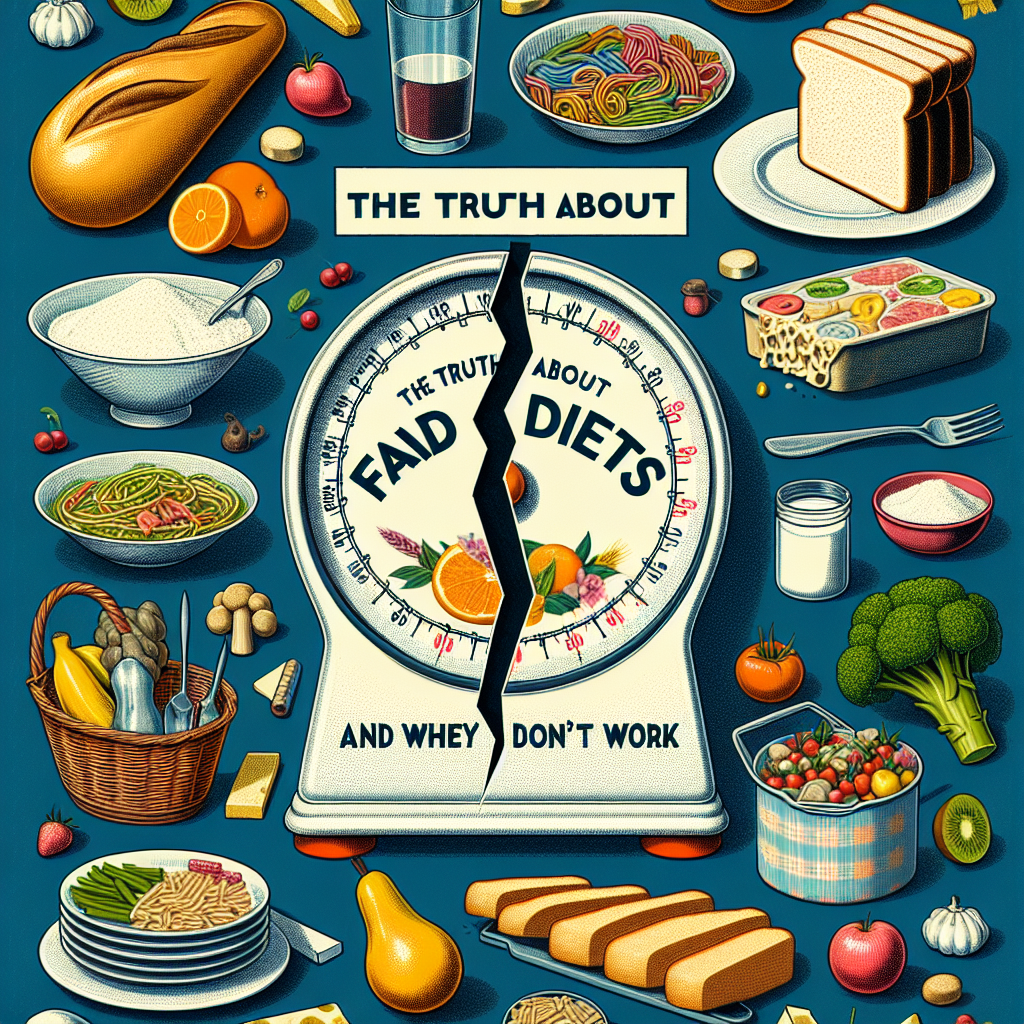Fad diets are everywhere. From juice cleanses to keto diets, it seems like there’s always a new quick fix promising to help you shed pounds fast. However, the truth is that fad diets are not only ineffective but can also be harmful to your health in the long run. In this article, we’ll explore why fad diets don’t work and what you can do instead to achieve sustainable, long-term weight loss.
Why Fad Diets Don’t Work
One of the main reasons why fad diets don’t work is that they are typically based on restrictive eating patterns that are not sustainable in the long term. Whether it’s cutting out entire food groups or severely restricting calorie intake, these diets often leave you feeling deprived and hungry, making it difficult to stick to them for an extended period of time.
Additionally, many fad diets promote rapid weight loss through methods that are not backed by science. For example, detox diets claim to “cleanse” your body of toxins, but in reality, your liver and kidneys already do this job effectively. The weight lost on these diets is often just water weight, which is quickly regained once you resume your normal eating habits.
Health Risks of Fad Diets
In addition to being ineffective, fad diets can also pose serious health risks. For example, very low-calorie diets can slow down your metabolism, making it harder to lose weight in the long term. These diets can also lead to nutrient deficiencies, as they often lack essential vitamins and minerals that your body needs to function properly.
Some fad diets may also promote unhealthy eating habits or disordered eating patterns, such as binge eating or restrictive eating. This can have long-lasting effects on your mental and emotional well-being, as well as your relationship with food.
What to Do Instead
If you’re looking to lose weight and improve your health, it’s important to focus on making sustainable lifestyle changes rather than following a fad diet. This includes eating a balanced diet rich in fruits, vegetables, whole grains, and lean proteins, as well as engaging in regular physical activity.
It’s also important to listen to your body and eat when you’re hungry, rather than following strict meal plans or eating schedules. By tuning into your body’s hunger and fullness cues, you can develop a healthier relationship with food and avoid the pitfalls of fad diets.
Conclusion
In conclusion, fad diets are not the answer to long-term weight loss and can actually be harmful to your health. Instead of following the latest diet trend, focus on making sustainable lifestyle changes that promote overall health and well-being. By eating a balanced diet, staying active, and listening to your body’s cues, you can achieve lasting results without resorting to fad diets.
FAQs
Are all diets fads?
No, not all diets are fads. Some diets, such as the Mediterranean diet or the DASH diet, are backed by scientific research and promote long-term health benefits. These diets focus on whole, nutrient-dense foods and are sustainable in the long term.
Can fad diets be dangerous?
Yes, fad diets can be dangerous, especially if they involve severe calorie restriction or the elimination of entire food groups. These diets can lead to nutrient deficiencies, metabolic issues, and disordered eating patterns.
How can I spot a fad diet?
Fad diets often promise rapid weight loss or use extreme methods to achieve results. They may also require you to purchase special supplements or meal replacements. If a diet sounds too good to be true or promotes quick fixes, it’s likely a fad diet.
Tip:
Remember, there is no quick fix when it comes to weight loss. Focus on making sustainable lifestyle changes that promote overall health and well-being, rather than following the latest fad diet trend.
#Truth #Fad #Diets #Dont #Work

